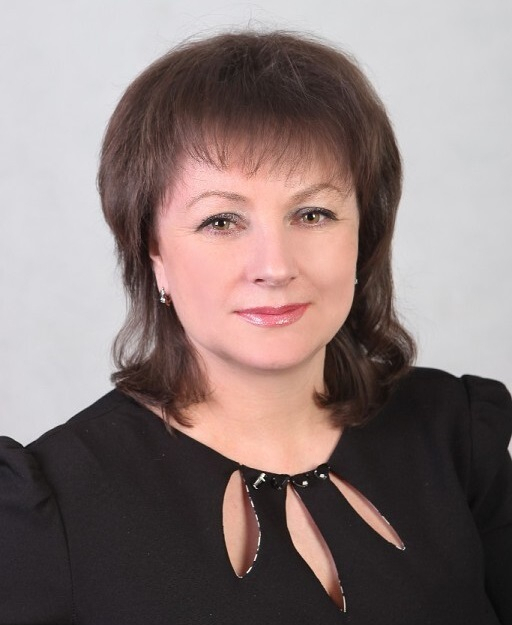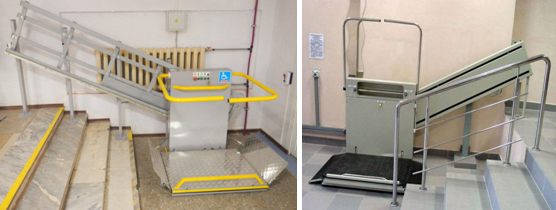Svetlana Berseneva: ‘Inclusion is an opportunity to go ahead with your plans whatever your health problems are’
Svetlana Berseneva, Head of the Centre for Inclusive Education at St Petersburg University, talks about the new centre that was opened in March 2023.
Today, the Centre for Inclusive Education at St Petersburg University is actively engaged in coordinating the activities at St Petersburg University to create conditions for students with disabilities. After the difficult Covid and post-Covid periods, the University has extensive experience in organising the teaching and learning process following an individual approach to students and creating necessary conditions.
What underpins the idea of inclusive education? What does this concept include?
This concept started to penetrate into our everyday life in 2013. Yet we could gain a real insight into the processes relating to the inclusion much later. This coincided with the time when the legislative norm of Article 79 of Federal Law 273 "On education in the Russian Federation" started to be implemented in the educational organisations, including organisations of higher education. Inclusion is including people with difficulties in physical development, disabilities, or mental illnesses into the active life of society.
I can give you a simple example. You want to go to the cinema. You choose a film, a cinema, buy a ticket, think over how you can get there. Going to the cinema is simple if all conditions meet what you need. Yet it is a challenge for a person with a disability or health limitations. Among the most common problems are how to get out of the house, how to use public transport, or how to enter the cinema ...
Inclusion is an opportunity to go ahead with your plans whatever your health problems are. In other words, "the world is one for all" or "we are different, we are equal".
In the teaching and learning process, inclusion is closely related to our understanding of the concept "learning together". These slogans underpin the mission of the Centre for Inclusive Education at St Petersburg University.
In February 2023, the Centre for Inclusive Education was created at St Petersburg University. Could you kindly tell us about the scope of the Centre? What are your tasks?
The Centre for Inclusive Education at St Petersburg University opened on 1 March 2023. This is not just compliance with legal requirements. It is a necessity. Every year, the number of applicants and students with health limitations and disabilities is growing. It is essential to create conditions for all children with health limitations and disabilities, regardless of the severity of their illness and nosology.
The University makes every effort and uses every opportunity to create necessary conditions for the children, not only through providing methodological assistance, but also through ensuring a barrier-free architectural environment, i.e. an opportunity to use vehicles, and to socialise in public space.

We should not forget about employment of graduates with health limitations and disabilities. This is a rather difficult task that requires interaction with employers. Together with Mariia Dorokhina, Head of the Career Centre at St Petersburg University, and other employees, we are solving this problem. Several of our students with disabilities are already working at Gazpromneft Science & Technology Centre within the framework of inclusion projects and employer quota. This is our first small experience of interaction between the University and the scientific and technological sphere in how to solve the issue of employment of children with disabilities and health limitations. Since July 2023, six 3rd- and 4th- year students have been working at the company when they do not have scheduled classes. By doing so, they improve their professional qualities and develop professional competencies.
An inclusive approach is not only about how to make it convenient for children in wheelchairs to enter the building or how to move around the building for visually impaired children. It is a wide range of activities to ensure that they can study on equal terms with their fellow students.
On the part of employers, there is a demand for specialists with disabilities. In this regard, special quotas are allocated. Yet companies do not always have an understanding of how to properly integrate such people into the work environment.
In 2023, the University showed the highest results in the independent assessment of the quality of education among universities in the Northwestern Federal District. The preparation was carried out under the coordinating function of the Centre for Inclusive Education at St Petersburg University. Could you please tell us more about preparation for the procedures of the independent assessment of the quality of education?
The independent assessment of the quality of education is a procedure that is related to various aspects of the activities of educational organisations and the conditions for organising the teaching and learning process, including for persons with disabilities.
It is necessary to emphasise that experts visually check the conditions, e.g. the presence of recreation facilities for students, access to safe water, organisational openness, and the reliability of the information provided. Among additional tools is a survey among students on a platform of the operating organisation. For several years, the operator has been Vercont Service OOO. If there are persons with disabilities and various nosologies at a university, a procedure for checking the architectural barrier-free environment is carried out, e.g. assistive technology for disabled, disabled parking space or spaces for vehicles of persons with disabilities, entrance areas, and access to inclusive sanitation, including a place for a guide dog. The list of requirements is fixed by legislative norms and sanitary regulations and standards (SanPiN). Educational organisations often discuss such a norm as organising a place for a guide dog. For us, this format was not relevant until 1 September 2023, but now we have everything to fulfil this norm. In the buildings at 7, 22nd Line, Vasilyevsky Island, and 71 Bolshoy Prospekt, Vasilyevsky Island, the Faculty of Law houses a labrador as a guide dog when a student has classes at the University.
On 14 August 2023, the University carried out the independent assessment of the quality of education. The assessment procedure was preceded by a period of active preparation not only in methodological and informational terms, but also in technical retrofitting with elements of a barrier-free environment in the buildings and on the territory of St Petersburg University. Additional technical equipment was installed that was purchased as part of planned inclusion activities.

I would like to express my gratitude to the University administration for trust in the preparation and conduct of the independent assessment of the quality of education and to all the managers and employees of offices and departments who carried out all the assigned tasks efficiently and promptly.
The main difficulty in meeting the requirements of the independent assessment of the quality of education is the creation of a barrier-free environment on the territory of the University. The University has 87 buildings where the teaching and learning process is implemented. Almost 70% of them are architectural monuments and cultural heritage sites. They are not suitable for installing the state-of-the-art technical equipment, e.g. electric hoists, lifts, or for redevelopment, e.g. expansion of doorways, flights of stairs, sanitary and hygienic premises.
The results of the assessment have not yet been received. Yet, according to the information presented at the meeting of the coordinating council, which was held as an offsite meeting in Interfax news agency in St Petersburg, St Petersburg University showed a decent result and revealed the dynamics of the main indicators of the independent assessment of the quality of education. It is solid evidence that joint efforts of all divisions of the University and the quality of the activities performed are the key to a positive result.
What areas are most popular among students with disabilities? Can they freely enter St Petersburg University in any area of study?
According to the legislation in the field of education, any person, regardless of nosology, severity of the disease, i.e. disabled group 1, persons with disabilities have the right to education at different levels, including higher education. Statistics show that the University enrols applicants for academic programmes in various areas. The most popular are the following: Law, International Relations, Psychology, History, Journalism, and Philology.
Today, among first-year students with health limitations and disabilities, there are students who have decided to devote their lives to linguistics, applied mathematics, international relations, vocal art, and law with knowledge of the Chinese language to name just a few. In all academic programmes that the children with disabilities have chosen, we need to: prepare the teaching staff to ensure adaptation and personal and professional development of children with disabilities; develop a correct methodological approach to teaching; install up-to-date technical equipment; and ensure social support and create conditions for a barrier-free environment.
Are there any activities at St Petersburg University to promote the socialisation and inclusion of students with disabilities in the socio-cultural life of the University?
Inclusion is including and involving students with health limitations and disabilities into socio-cultural life in ways that are similar to their non-disabled peers. Socialisation should take place under the strict guidance of not only the curators of student groups, but also those around them at various stages of training. Among them should be: employees of the scientific library (technical teaching aids are located in the premises and structural units); catering staff; and administrative departments. In my opinion, the University’s social clinic, the volunteer student movement and, of course, the University’s interaction with organisations, such as the St Petersburg State Budgetary Institution of Culture "State Special Central Library for the Blind and Visually Impaired", public organisations, and societies of disabled people should also play a role in this sphere.
Since 2019, St Petersburg University has been submitting regular requests to the Russian Ministry of Science and Higher Education and the Russian Ministry of Labour for additional budgetary allocations for the implementation of measures to ensure the accessibility of infrastructure and educational services for persons with disabilities.
Requests include costs for equipping entrance areas with ramps, equipping adapted lifts, installing handrails, widened doorways and organising sanitation and hygiene facilities for disabled. The list of necessities also includes the re-equipment of indoor units to accommodate citizens belonging to low-mobility groups; the purchase of replacement wheelchairs; and duplication of inscriptions, signs and other text and graphic information with signs made in embossed dot Braille to name just a few.
The total amount of need declared by the University for 2024–2026 was 370.2 million roubles. Despite the direct compliance of the activities planned by St Petersburg University with the goals of the state programme "Accessible environment" and the conceptual support of the ministries, additional budgetary allocations were again not provided to the University due to the difficult macroeconomic situation and government priorities. Yet, St Petersburg University will continue to seek internal resources to carry out the most significant and urgent work to ensure an accessible environment for students and employees.
How do you see inclusive education at St Petersburg University in future?
In future, this is a team of like-minded people not only from among the University administration, but also from the student and parent community. Only together can we ensure productive work in this direction.

